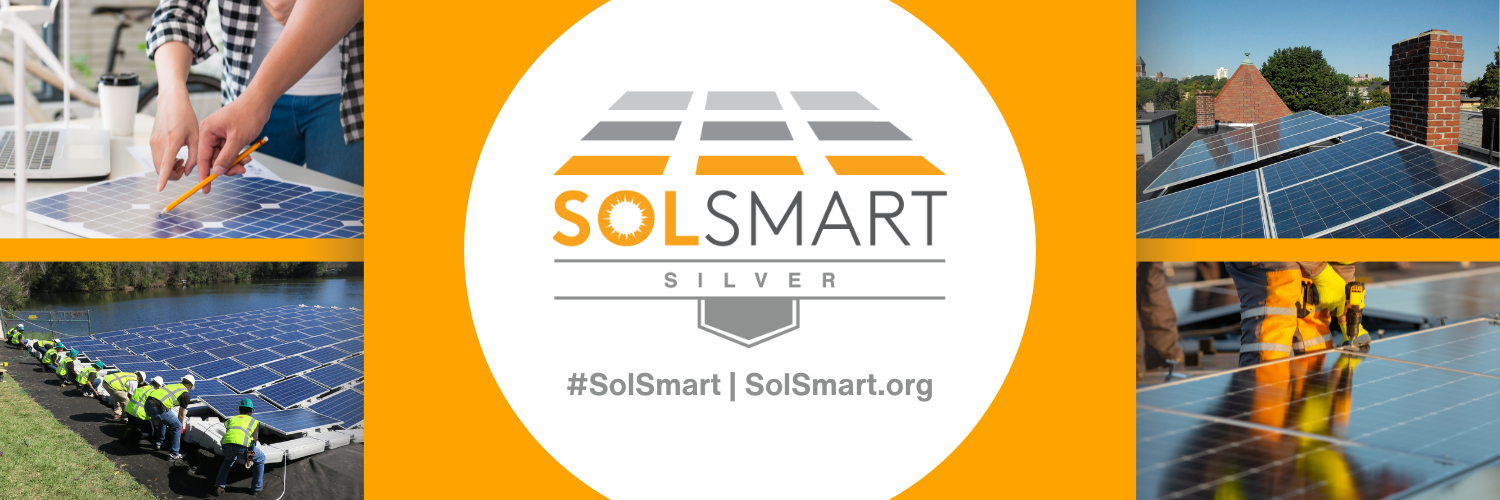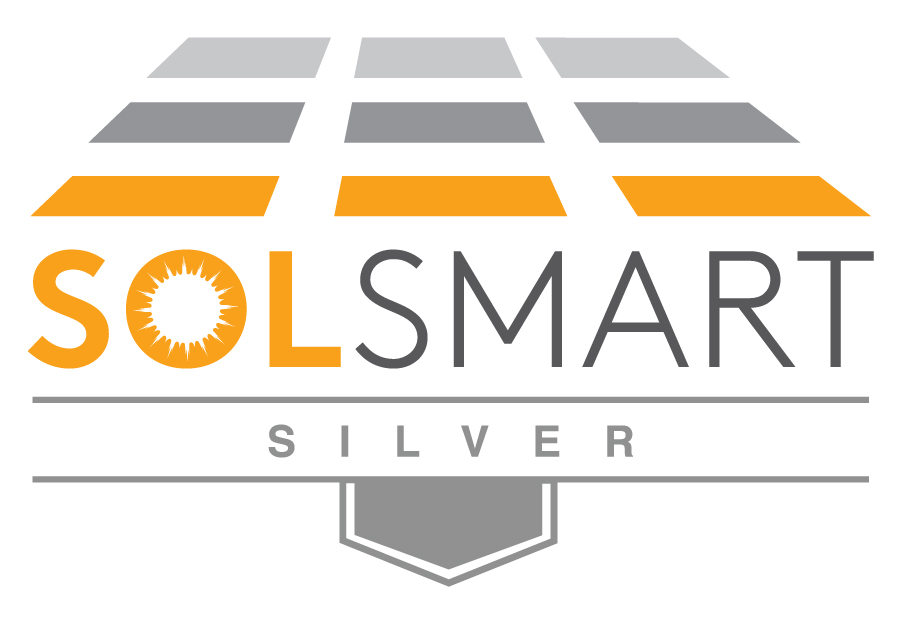Solar Energy Resources

Getting Started with Solar
Welcome to the City of Fort Worth’s solar energy resource webpage. The City of Fort Worth is seeking ways to encourage solar energy development in our community. This webpage represents a collection of solar information and resources for the community. Our community’s solar goals can be found in its Solar Statement(PDF, 176KB). For more information about the basics of solar energy, your solar options and questions to ask solar professionals, read the Residential Consumer Guide to Solar Power and visit the Department of Energy’s Homeowner’s Guide to Going Solar.
 |
City of Fort Worth has received a Silver designation from the national SolSmart program for encouraging the growth of affordable solar energy options at the local level. As a SolSmart Silver designee, the City of Fort Worth has adopted nationally recognized best practices to advance solar market growth. The city worked with SolSmart's no-cost technical assistance team to increase local knowledge of solar energy so the entire community, including residents and businesses, could benefit.
|
SolSmart is a national program funded by the U.S. Department of Energy that has helped hundreds of local governments become “open for solar business.” Learn more about the program here.
Policies and Procedures
The City of Fort Worth is committed to exceptional customer services as it relates to solar processes.
- Providing clear guidelines about the solar permitting and inspection process in our Residential Permit Requirements & Commercial Permit Requirements. Here is what you need to know about our inspections Inspection Guides.
- Using a Citizen Access Portal you can apply for permits online.
- Processing small rooftop solar PV permits applications will be reviewed within in 24 hours or auto issued based on scope of project.
- All solar permits can have next day inspections.
- The roof shall be constructed to support the loads imposed by the roof-mounted solar collectors. Roof-mounted solar collectors that serve as a roof covering shall conform to the requirements for roof coverings in IRC or IBC applicable codes. Where mounted on or above the roof coverings, the collectors and supporting structures shall be constructed of noncombustible materials or fire retardant treated wood equivalent to that required for roof construction. Roof and wall penetrations shall be flashed and sealed to prevent entry of water, rodents and insects in accordance with IRC or IBC applicable codes. Photovoltaic systems must be installed in accordance with 2023 NEC Article 690, including rapid shutdown provisions in 690.12 and manufacturer’s instructions. Installation of solar panels shall not degrade the integrity of the roof system. Electrical work associated with solar panels requires a separate electrical permit. Ground mounted solar will require engineering based on IRC or IBC applicable codes. (Code links here: National Electrical Code; International Residential Code; International Building Code)
- All ground mounted solar panels will be treated like accessory structures (Accessory Uses)
The Benefits of Going Solar
Solar energy uses a renewable energy source – the sun – and provides many benefits for individuals and the community. It improves environmental quality by reducing carbon emissions and air pollution, supports local solar companies in Texas, creates local jobs, saves money on energy costs and improves electric grid resilience during peak demand and other stresses to the system.
Solar Maps and Potential
Investigate your property’s solar potential by clicking here. You can also estimate the performance of potential PV projects using the National Renewable Energy Laboratory’s PVWatts Calculator.
Financing, Incentives and Tax Exemptions
Typically, solar installations are paid for through loans or cash, with Federal and State incentives available.
Consumer Protections, Solar Rights and Procedures
To learn more about the laws in Texas surrounding solar rights and consumer protections read SB 398 Solar Consumer Protection Act(PDF, 144KB).
Finding a Contractor and Going Solar
Find a solar contractor (or to) to assess your home for solar energy and provide a quote.
- Certified practitioners can be found through NABCEP.
- Visit EnergySage to learn about solar energy and submit for solar quotes from a network of pre-screened, local solar installers.
- Consumer Solar Checklist – a checklist for residential consumers considering solar energy from IREC, the Interstate Renewable Energy Council.
- Clean Energy Consumer Bill of Rights – ensure a positive consumer experience by addressing important issues from IREC, the Interstate Renewable Energy Council.
- Solar Customer Resource Portal – various resources from SEIA, the Solar Energy Industries Association.
- Solar Owner’s Manual – information for current solar homeowners to ensure they are getting the most out of their system from Solar United Neighbors.